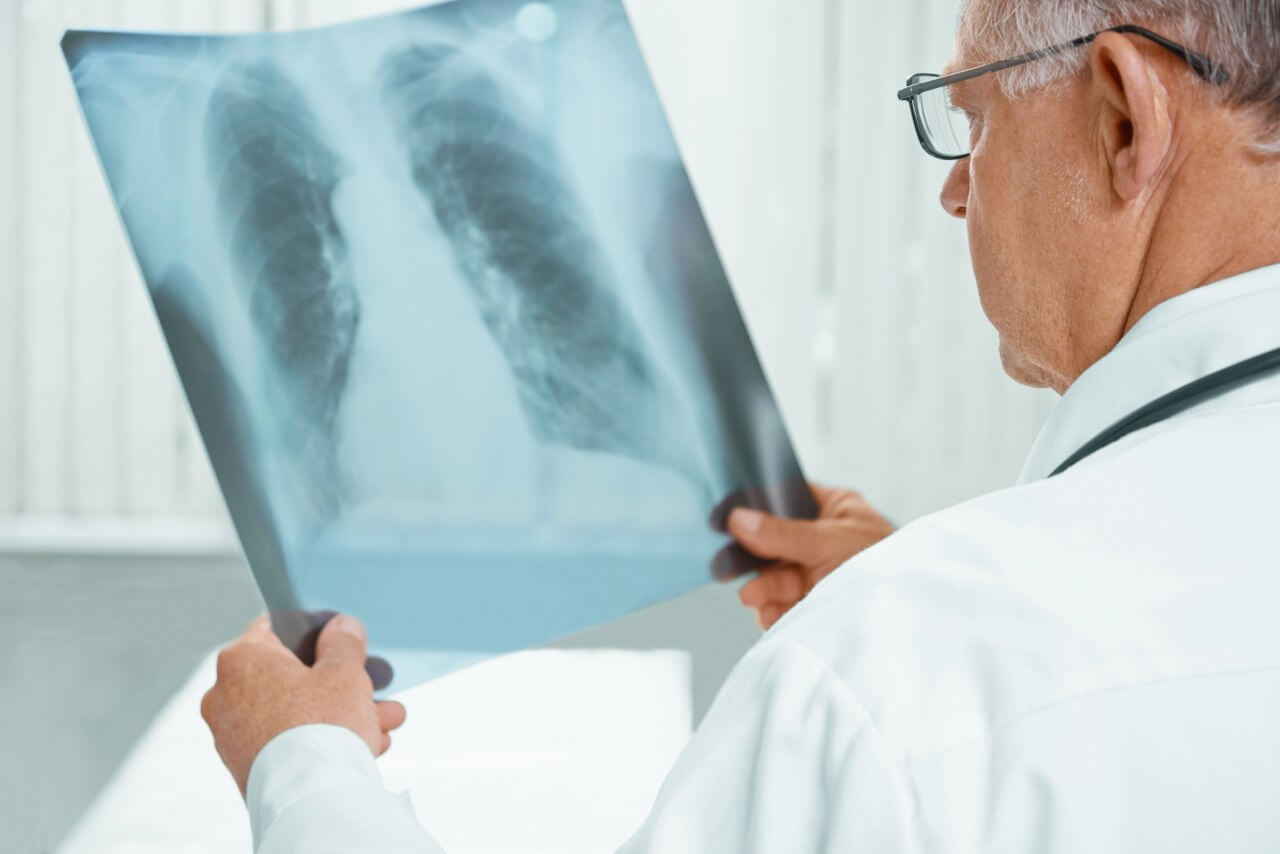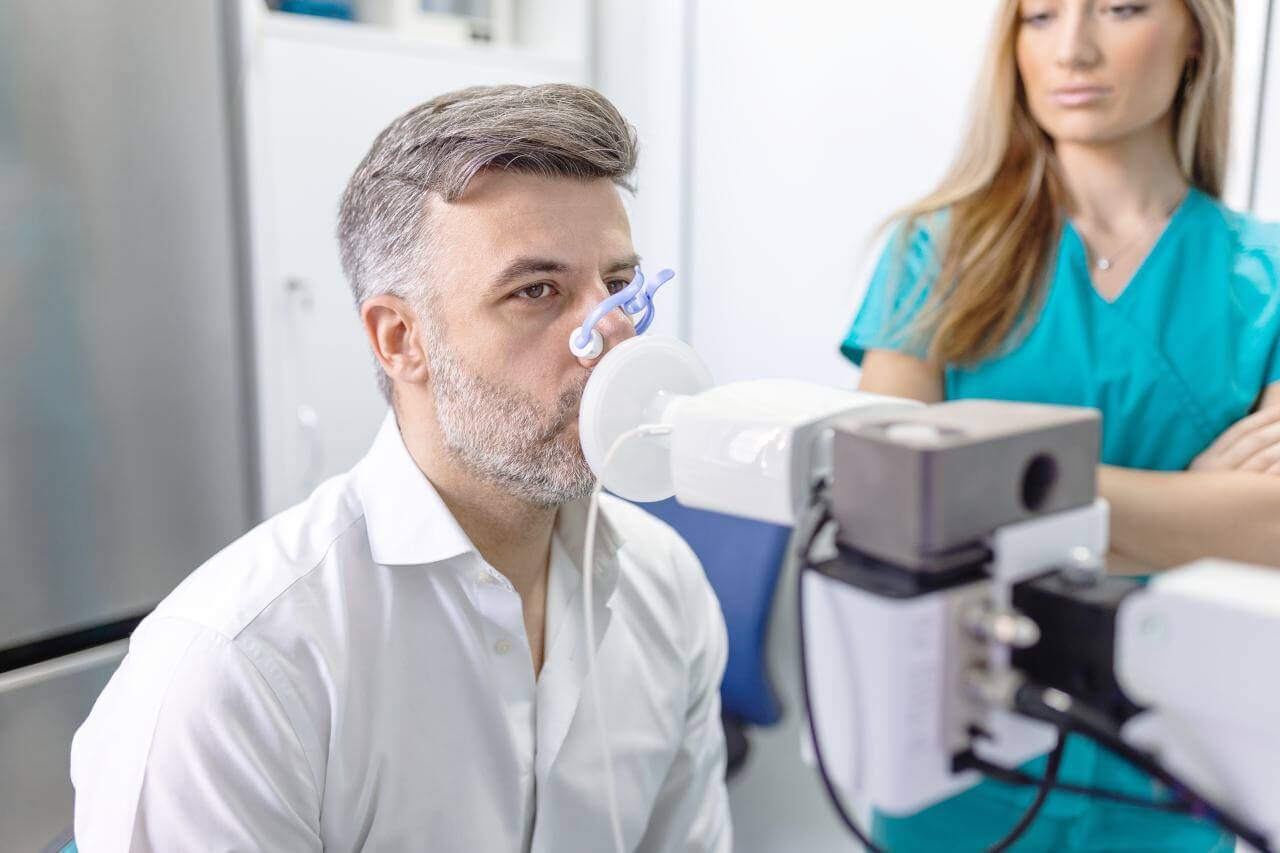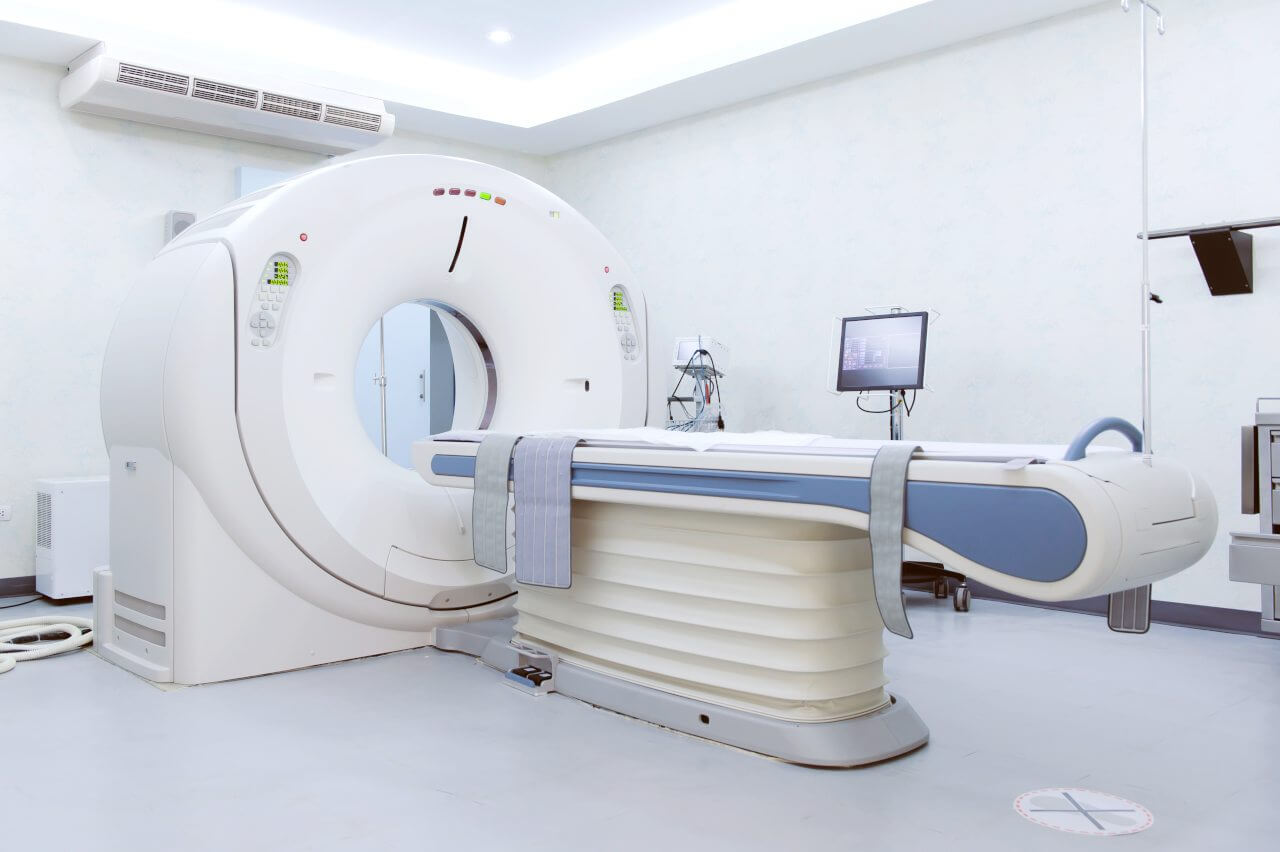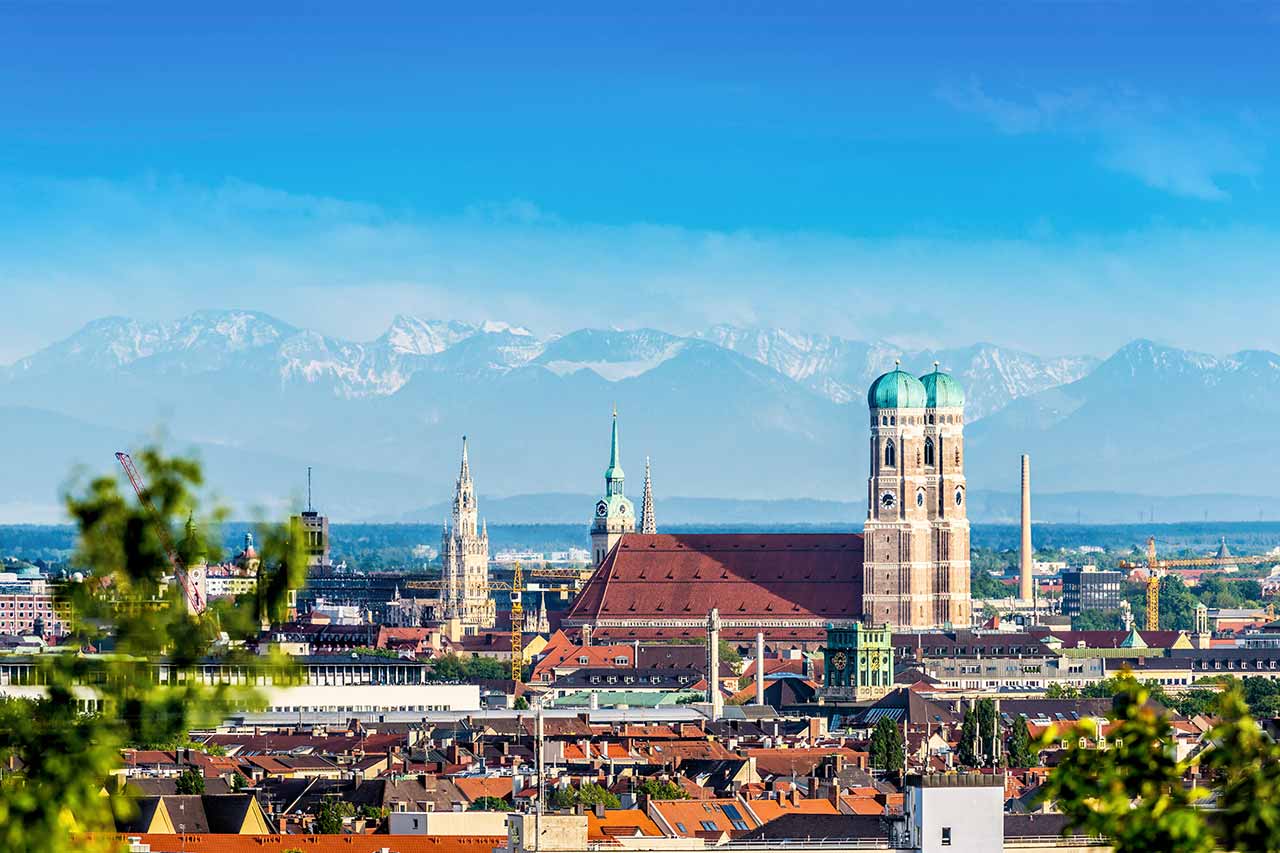
The program includes:
- Initial presentation in the clinic
- clinical history taking
- review of medical records
- physical examination
- laboratory tests:
- complete blood count
- biochemical blood analysis
- inflammation indicators (CRP, ESR)
- alpha-1-antitrypsin
- x-ray and bronchography
- electrocardiogram (ECG)
- high-resolution computed tomography (HRCT)
- collected three sputum samples
- pulmonary function test
- blood gas analysis
- bronchoscopy with biopsy
- histological and microbiological examination
- bronchial lavage
- nursing services
- development of individual treatment plan
Required documents
- Medical records
- Chest X-ray, MRI/CT scan (if available)
Service
You may also book:
 BookingHealth Price from:
BookingHealth Price from:
About the department
The Department of Pulmonology at the Pulmonary Clinic Munich offers the full range of medical services in its area of specialization. The medical facility provides highly accurate diagnostics and effective treatment of chronic obstructive pulmonary disease, bronchial asthma, coronavirus infection (COVID-19), pneumonia, lung cancer, tuberculosis, obstructive sleep apnea, and other pulmonary diseases. The therapeutic process begins with a full diagnosis, which may include a set of laboratory tests, pulmonary function testing, imaging studies, and bronchoscopy. Whenever required, lung scintigraphy and combined computed tomography and positron emission tomography (PET/CT) can also be performed here. The department also has a Sleep Laboratory, which performs cardiorespiratory polygraphy and polysomnography for suspected sleep-disordered breathing. For the treatment of pulmonary diseases, the department’s doctors carry out drug therapy, inhalation therapy, oxygen therapy, non-invasive artificial ventilation, and bronchoscopic procedures. The optimal course of treatment is prescribed individually, taking into account the diagnosis, the patient's general condition, the presence of concomitant pathologies, age, etc. Diagnostic examinations and treatment are carried out in strict accordance with current clinical protocols and recommendations of the German Society of Pulmonology (DGP).
The Head Physician of the department is Dr. med. Markus Weinmüller. The specialist trained in Ireland, England, and Switzerland and worked for a long time at reputable hospitals in Munich, in particular at the Hospital Bogenhausen Munich and the Specialized Pulmonary Clinic Asklepios Munich-Gauting, and has also been heading the Pulmonary Clinic Munich for almost ten years. Dr. Weinmuller has excellent professional skills in his field of expertise and brilliantly copes with clinical tasks of any complexity.
One of the primary interests of the department's pulmonologists is the treatment of chronic obstructive pulmonary disease (COPD). The pathology is accompanied by impaired patency of the bronchioles, dilation of the alveoli, and impaired gas exchange. COPD causes irreversible pathological changes in the lungs, and therefore it is important to promptly identify the pathology and carry out the necessary treatment. The main risk factor for the development of COPD is smoking, including passive smoking. The main symptoms of COPD include coughing and shortness of breath due to insufficient oxygen saturation in the blood. In the advanced stages of the disease, shortness of breath occurs even with little physical activity or at rest. To make a diagnosis, the department's doctors perform spirometry, computed tomography of the chest, and laboratory tests. The treatment is based on drug therapy with bronchodilators, glucocorticosteroids, mucolytics, and antibiotics. Lifestyle modification also plays an important role. Patients are highly recommended to quit smoking, minimize contact with dust, allergens, and aggressive chemicals, and receive physical therapy. Physiotherapeutic treatment also has a positive effect.
The department also has impressive experience in providing medical care to patients with coronavirus infection (COVID-19). In many situations, the pathology is relatively mild, like many other acute respiratory infections. However, in some cases, COVID-19 may cause serious damage to the lungs and other internal organs, provoke acute respiratory failure, and also lead to long-term complications (post-COVID syndrome). The department’s specialists conduct a comprehensive diagnosis for patients who have suffered a coronavirus infection, based on the results of which they prescribe a course of rehabilitation treatment. It may include drug therapy, CPAP therapy, inhalations, breathing exercises, etc. The department's pulmonologists also advise patients on vaccination against COVID-19, which is the most reliable method of preventing the development of complex forms of the disease.
An integral part of the department's clinical practice is the treatment of lung cancer, one of the most common and dangerous types of oncology. Lung cancer is characterized by nonspecific symptoms such as cough, weight loss, shortness of breath, general weakness, etc. Therefore, oncopathology is often detected at advanced stages, which complicates the treatment process. Typically, treatment for lung cancer is based on the following three components: surgery, systemic drug therapy, and radiation therapy. The department's doctors provide medical care to patients with lung cancer in collaboration with specialists from specialized clinics in Munich. An individual treatment regimen is developed at an interdisciplinary tumor board with the participation of pulmonologists, thoracic surgeons, radiation therapists, radiologists, and other experts. The department's pulmonologists are responsible for chemotherapy, targeted therapy, and immunotherapy. In addition, doctors provide palliative care to patients with terminal stages of lung cancer, which is aimed at alleviating symptoms and improving quality of life.
The department diagnoses and treats the following pulmonary diseases:
- Chronic obstructive pulmonary disease (COPD)
- Bronchial asthma
- Coronavirus infection (COVID-19), including post-COVID syndrome
- Lung cancer
- Pneumonia
- Emphysema
- Pulmonary fibrosis
- Pleurisy of various etiologies
- Tuberculosis
- Interstitial lung disease
- Obstructive sleep apnea
- Other diseases
The department's range of medical services includes the following:
- Diagnostic services
- Laboratory tests
- RAST test and IgG antibody test
- Blood gas test
- Allergy skin tests: prick tests, scratch tests, patch tests, and intracutaneous tests
- Express blood tests
- Bronchoscopy (endoscopic examination)
- Lung diffusion capacity testing
- Pulmonary function testing: spirometry and body plethysmography
- Pulse oximetry
- Computed tomography of the chest
- X-ray of the chest
- Ultrasound examinations of the chest
- Lung scintigraphy
- Combined method of computed tomography and positron emission tomography (PET/CT)
- FeNO test (measurement of fractional exhaled nitric oxide)
- Resting electrocardiography
- Cardiorespiratory polygraphy
- Cardiorespiratory polysomnography
- Spiroergometry
- Laboratory tests
- Therapeutic services
- Drug therapy with pills, injection therapy, and infusion therapy
- Inhalation therapy
- Oxygen therapy
- Pleural puncture
- Chemotherapy, targeted therapy, and immunotherapy for oncological diseases of the chest organs (lung cancer, pleural mesothelioma, etc.)
- Palliative care for lung cancer, COPD, emphysema, pulmonary fibrosis, and other pulmonary diseases
- CPAP therapy
- Allergen-specific immunotherapy (hyposensitization)
- Other medical services
Curriculum vitae
Dr. med. Markus Weinmüller studied medicine at the Julius Maximilian University of Wuerzburg. He also trained abroad, namely in Ireland, England, and Switzerland.
In 1995, the doctor defended his thesis at the University Hospital Wuerzburg. In 1995, he began working at the Hospital Bogenhausen Munich (Department of Cardiology and Pulmonology, Department of Gastroenterology, and Department of Intensive Care and Emergency Medicine). In 2002, the specialist was board certified in internal medicine and received additional qualifications in X-ray diagnostics of the internal organs.
Dr. Markus Weinmüller's clinical training in the fields of pulmonology and pulmonary oncology took place at the Hospital Bogenhausen Munich and the Specialized Pulmonary Clinic Asklepios Munich-Gauting. In 2004, he was board certified in pulmonology. In 2007, Dr. Weinmüller took up the position of Senior Physician in the Department of Pulmonology at the Hospital Bogenhausen Munich. In 2015, he headed the Pulmonary Clinic Munich.
The doctor's clinical interests include the treatment of respiratory cancers, intensive care for pulmonary diseases, including non-invasive artificial ventilation, and bronchoscopic procedures.
Dr. Markus Weinmüller is a qualified instructor for smoking cessation courses and is certified by the Bavarian Medical Association in this field.
The specialist is also a Member of the German Society of Pulmonology (DGP), the German Society for Sleep Research and Sleep Medicine (DGSM), and the European Respiratory Society (ERS).
Photo of the doctor: (c) Lungenpraxis München
About hospital
The Pulmonary Clinic Munich is a highly specialized medical facility where patients with respiratory diseases receive comprehensive medical care. The clinic was founded back in 1949 by Dr. Rudolf Baumann and, since then, has undergone many renovations while maintaining high authority in Germany. Initially, the medical complex specialized in the treatment of tuberculosis. Over time, pulmonologists began treating bronchial asthma, chronic obstructive pulmonary disease, and pneumonia. Today, the healthcare facility offers treatment for the full range of pulmonary diseases using the latest achievements of modern medicine in this area.
The clinic's team of doctors focuses on patients with chronic obstructive pulmonary disease, bronchial asthma, coronavirus infection (COVID-19), pneumonia, lung cancer, tuberculosis, and obstructive sleep apnea. Specialists pay attention to a comprehensive diagnosis of the respiratory system. The clinic has modern diagnostic rooms for bronchoscopy, X-ray, ultrasound, computed tomography, pulmonary function testing, lung scintigraphy, combined computed tomography and positron emission tomography, polygraphy, polysomnography, and other tests. Treatment includes the use of various drug therapy regimens with pills, infusions, injections, inhalations, CPAP therapy, oxygen therapy, allergen-specific immunotherapy (hyposensitization), and many other treatment procedures.
The clinic's doctors work for the benefit of their patients, using their wealth of experience and expert knowledge to restore health and ensure a high quality of life. The clinic’s medical team prioritizes an individual approach to each patient, which helps achieve good results.
For decades, many patients from Germany and other countries have chosen the Pulmonary Clinic Munich for diagnosis and treatment. The medical institution has an excellent reputation in the European medical arena, and high treatment success rates are the best confirmation of this very fact.
Photo: (с) depositphotos
Accommodation in hospital
Hotel
You may stay at the hotel of your choice during the outpatient program. Our managers will support you for selecting the best option.





